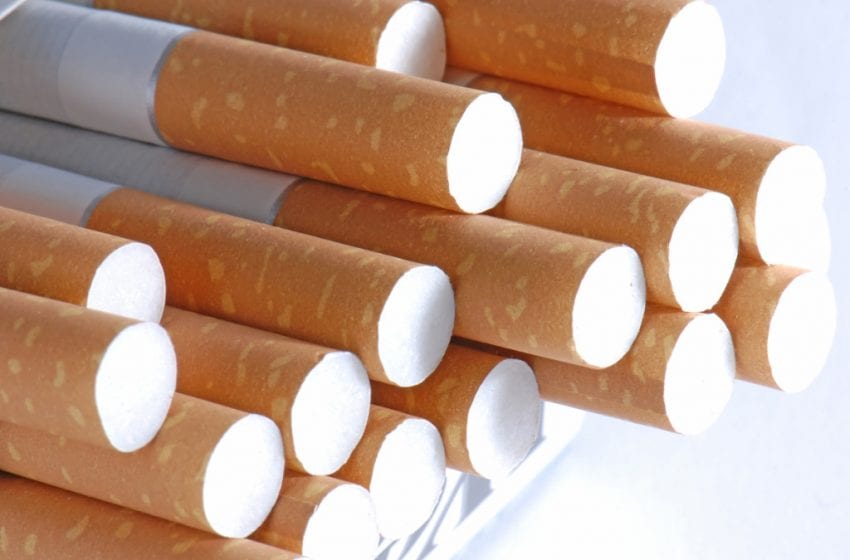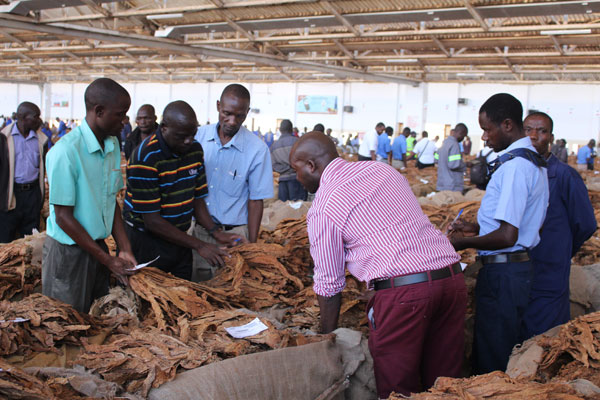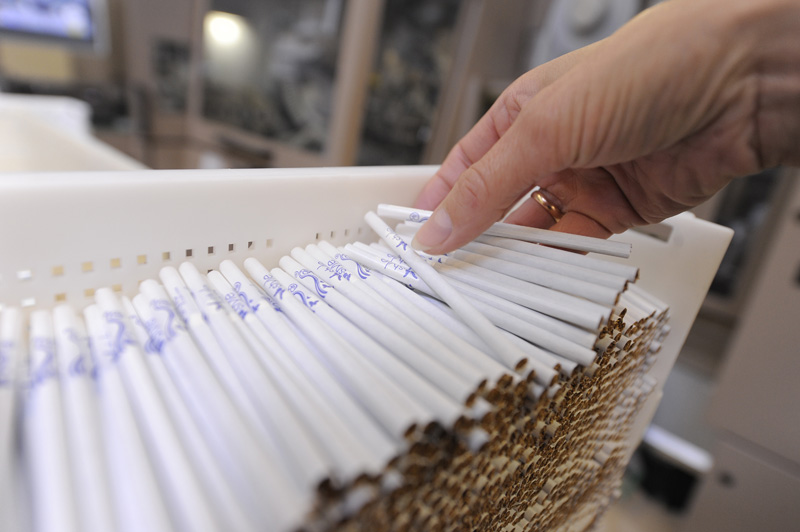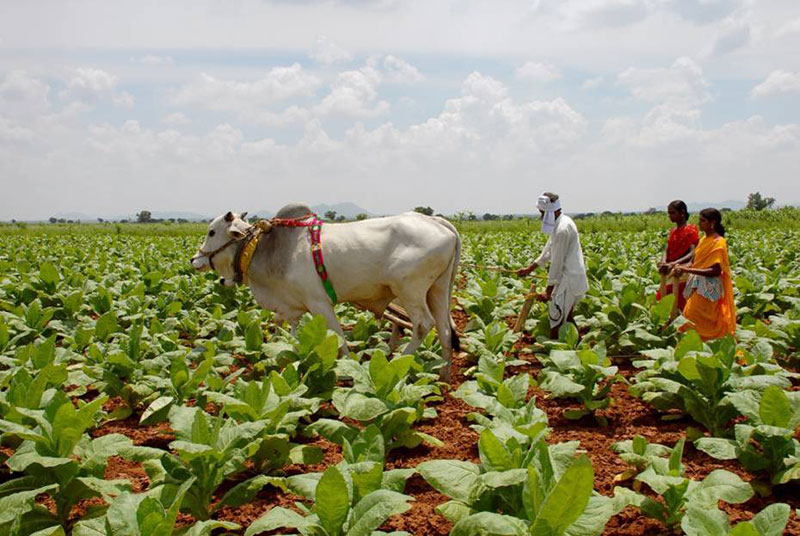Azerbaijan’s State Customs Committee is making a number of proposals aimed at strengthening the fight against the illegal import and sale of cigarettes, according to a Trend News Agency story quoting the chairman of the State Customs Committee Aydin Aliyev.
However, the only proposal described in the story relates to restricting legal imports rather than clamping down on illegal activities.
Aliyev said the proposals envisaged restricting the quantity of cigarettes that citizens could import for their personal use to one carton of cigarettes once a month.
Current rules are said to allow the import of three cartons per person.
Speaking at a press conference in Baku on January 19, Aliyev said the new proposals would be discussed during the spring session of parliament.
Category: People

Import limit proposed

Retail limits proposed
A bill introduced into the Hawaii Senate on Friday is seeking to keep new tobacco and electronic-cigarette stores from opening near schools, public parks, or public housing complexes, according to a story by Patrick Lagreid for HalfWheel.
Lagreid said the bill had been introduced by six state senators.
If passed, it would require any ‘new tobacco specialty shop’ to be at least 750 feet from the designated places.
Violators would face a fine of $500 for the first day of offense, and a fine of between $500 and $2,000 for subsequent days of offense.
The bill has not been referred to a committee, but if it were to pass, the ban would take effect on January 1, 2019.
Few fines for smokers
A Hungarian law banning tobacco smoking at public transport stops is being seen as a failure, according to a story in the Budapest Business Journal citing a Magyar Idők report.
In five years, fewer than 500 fines have been imposed for breaking this law.
The law, passed in 2012, bans smoking at public transport bus and tram stops, in pedestrian underpasses and on train platforms.
But this had not seemed to have driven smokers away, mostly because there were not enough personnel in public administration to enforce the law.
In 2013, 3,150 checks were carried out and 43 fines imposed; in 2014, 2,288 checks were carried out and 102 fines imposed; in 2015, 946 checks were carried out and 94 fines imposed; in 2016, 8,233 checks were carried out and 140 fines imposed; and last year, 754 checks were carried out and 111 fines imposed.
Norwegians turn to snus
The incidence of daily tobacco smoking has halved in Norway during the past decade, according to a story by Terje Solsvik for Reuters citing Statistics Norway figures.
For the first time, last year the incidence of snus use was greater than that of smoking.
Among Norway’s adult population, 11 percent were daily smokers in 2017, a fall of one percentage point from the figure for the previous year, and down from 22 percent in 2007.
Meanwhile, the incidence of snus use rose to 12 percent in 2017 from 10 percent in 2016. Data was not available for 2007.
Snus challenge imminent
A legal challenge against the EU’s ban on snus outside Sweden is due to be heard at the European Court of Justice on January 25, according to a note posted on the website of the New Nicotine Alliance (NNA).
The case was originally brought by Swedish Match, but the NNA, which is a charitable organization concerned with improving public health through a greater understanding of new, risk-reduced nicotine products and their uses, joined the case because it concerned the health of smokers in the EU.
‘It is not about markets and commerce, but about the right to be able to choose a safer alternative to smoking,’ the NNA said in its note. ‘For the NNA this case is about whether some 320,000 premature deaths from smoking can be saved in future years, as detailed by Dr Lars Ramström in his statement to the court.’ Since 1990, Ramström has been director of the Institute for Tobacco Studies, Stockholm, Sweden, an independent research institute focusing on the epidemiology of tobacco use and related policy matters.
The NNA says that the core of its case is that the ban on snus is both disproportionate and contrary to the right to health. ‘There is no need for the ban, and the ban, if upheld, will continue to contribute to excess mortality from smoking in Europe,’ it said.
‘This is the first time that a “right to health” argument has been used to challenge a bad tobacco law: we argue that the Court needs to examine the compatibility of the Tobacco Products Directive with both the EU Charter of Fundamental Rights and the harm reduction obligation under the [World Tobacco Organization’s] Framework Convention on Tobacco Control.’
Last year the ECJ asked all EU states and the EU Institutions to comment on the case, and it received five responses.
On January 25, all parties to the case will be given 15 minutes or so to expand on their arguments.
After the hearing, the Advocate General assigned to the case is due to examine the arguments and evidence, and to come up with a preliminary opinion for the court.
The court is due to reach a final decision later this year.
The NNA note is at: https://nnalliance.org/blog/223-campaign-to-legalise-snus-update-on-the-ecj-case.
Child-labor issue raised
A Maltese member of the European Parliament has asked what is being done to help prevent children working on tobacco farms.
In a preamble to her question put to the EU Commission, Marlene Mizzi said that today, thousands of child workers spent summers working on tobacco farms, often to earn money needed for books, school supplies and backpacks, or to help their parents pay the bills.
‘Many experience symptoms of acute nicotine poisoning, including nausea, vomiting, headaches, and dizziness,’ she said.
‘Public health studies have shown that tobacco farmworkers have nicotine levels in their bodies equal to smokers in the general population. ‘Moreover, it is dangerous for children to work 12 hours a day in the sun and high heat while absorbing nicotine and pesticides.
‘Working in tobacco can be perilous for adults, but it is especially harmful to children whose bodies and brains are still developing.’
Mizzi then asked: ‘Can the Commission clarify what measures it plans to take with regard to the tobacco industry, in order to protect the health of children by preventing hazardous child labour on tobacco farms?’
The question is due to be answered by the Commission in writing.
Quality issues in Malawi
Concerns have been expressed in Malawi about the quality of some of this season’s tobacco, though no official assessment has yet been made, according to a story in The Times.
The concerns center around a dry spell that has hit some tobacco growing regions.
The CEO of the Tobacco Control Commission (TCC), Kaisi Sadala, was quoted as saying the dry spell was a matter of concern, but he implied that there was still time for the rains to resume and make a difference to the crop.
“We are getting reports that, in some areas, the crop has started to wither,” Sadala said.
Meanwhile, the CEO of the Tobacco Association of Malawi, Matthews Zulu, said the association was assessing the situation “to give a true reflection on the ground”.
Zulu, too, implied that there was still time for the rain to make a difference, but he added that the current situation painted a gloomy picture of tobacco production this season.
The TCC says that the results of the first round of crop assessment will be ready by the end of this month.
Figures from the TCC show that, as of early December, 41,784 farmers had registered to grow 162 million kg, short of the buyer ‘demand’ for 171 million kg.
Even so, Sadala warned that farmers who were growing tobacco without having registered with the commission might find it difficult to sell their crops on the action floors.
Russians hit by health bug
The incidence of tobacco smoking has dropped significantly in Russia during the past five years, according to a story in The Moscow Times citing a report in the Kommersant business daily.
The number of adult smokers is said to have fallen 22 percent over five years, while there has been a ‘threefold decrease in smoking among minors’.
“Looking back at the past 5-7 years, we managed to partially overcome bad habits like smoking thanks to a progressive law against tobacco smoking,” Health Minister Veronika Skvortsova was quoted as saying.
At the same time, Skvortsova was able to report that Russia’s alcohol consumption had dropped by 80 percent during the past five years.
The Times story said that the latest World Health Organization figures put Russia’s alcohol consumption below that of France and Germany, though it wasn’t clear whether the figures compared total consumptions or per capita consumptions.
The consumer-rights watchdog, Rospotrebnadzor, was said to have credited new minimum price laws, advertising bans and sales restrictions for the drop in alcohol consumption.
And while drinking and smoking are going down, exercising is going up. About 40 percent more Russians are said to have become involved in sports during the past five years.
‘Make’ them quit
The umbrella organization for Danish municipalities, Kommunernes Landsforening (KL), has proposed a new anti-smoking initiative whose tentacles would reach into the private spaces of municipal employees who choose to smoke.
According to a story in The Copenhagen Post quoting Politiken; if KL has its way, soon, municipal employees will not be allowed to smoke during ‘working hours’.
The new proposal would mean that these employees would not be allowed to smoke at work, on the way to and from work or when they work at home.
“Smoking is the single most negative factor for overall health in Denmark,” Thomas Adelskov, the chairman of KL’s social and health committee, was quoted as saying. “That’s why we are urging all the municipalities to make a special effort to make more people stop smoking and to prevent fewer starting.”
The Post said that if the country’s municipalities chose to go down this path, they would seem to have the backing of the Danish population, but it wasn’t clear how it arrived at this conclusion given that it reported that only 40 percent of people in Denmark supported general workplace smoking bans.
‘A new opinion poll carried out by Megafon for Politiken and TV2 shows that 40 percent think that smoke-free work places should be introduced – not only in the municipal regime but also in private companies,’ the Post wrote.
‘Smoke-free schools are even more popular. Last November, a poll carried out by Kantar Gallup for the cancer organization Kræftens Bekæmpelse showed a whopping 79 percent behind the idea, with only nine percent against.’
Looking to quit
Some flue-cured tobacco growers in the Prakasam district of Andhra Pradesh, India, are willing to quit the crop if the union government will compensate them to the tune of Rs1,000,000 per barn, according to a story on The Hindu Online.
Having suffered four consecutive years of drought, some of the growers operating in the traditional Southern Black Soil (SBS) and Southern Light Soil (SLS) areas of Prakasam are keen to quit flue-cured tobacco growing if the government provides compensation for dismantling the barns permanently.
The SBS and SLS areas account for 50 percent of the tobacco grown in Andhra Pradesh.
YSR Congress Party’s chief whip in Parliament, Y.V. Subba Reddy, is due to lead a delegation of farmer leaders to New Delhi to press for a suitable financial package to be included in the Union Budget.
The proposal is being presented as being in line with the strategy of reducing tobacco production laid out by the World Health Organization’s Framework Convention on Tobacco Control.
And it is being seen as almost inevitable as drought-hit growers have been forced already to cut down tobacco curing per barn by about 20 percent and fear that further reductions could render cultivation and processing unviable.
Any tobacco reduction strategy that did not include a reduction in the number of barns would be a futile exercise, the growers say.
The Hindu story said the clamor for quitting tobacco growing had gathered steam since 2015 when the sector saw a spate of suicides among growers, forcing the-then Union Commerce Minister, Nirmala Sitharaman, to visit the area and help growers by offering compensation of Rs20 per kg for low-grade tobacco that had no takers on the regular market.










